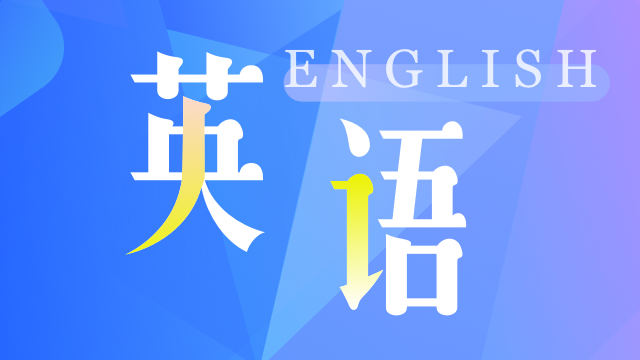There’s an ongoing debate in English about when you should use who and when to use whom. According to the rules of formal grammar, who should be used in the subject position in a sentence, while whom should be used in the object position, and also after a
preposition.
在英语中,对于何时用who何时用whom的问题,一直有持续的讨论。依据正式语法中的规则,who替代句子中主语的位置,whom替代句子中宾语的位置,也可用于介词后。
用于问句当中:
Who made this decision? [here, who is the subject of the sentence]
谁做的这个决定?[who在句子中当主语]
Whom do you think we should support? [here, whom is the object of support]
你认为我们该支持谁?[whom充当support的宾语]
To whom do you wish to speak? [here, whom is following the preposition to]
你希望和谁讲话?[whom做介词to的宾语]
In practice, most people never use whom like this in speech because it sounds extremely formal. They don't use whom at all, and instead use who in all contexts, i.e.:
实际上,因为whom的表达太正式,大多数人在讲话中并不使用whom。在所有的场合中都使用who代替,比如:
Who do you think we should support?
你认为我们该支持谁?
Who do you wish to speak to?
你认为我们该支持谁?
作为关系代词
Who and whom are also relative pronouns, used to link one clause to another. For example:
Who和whom也都也作为关系代词,用于连接两个子句。比如:
The man whom you met yesterday is coming to dinner.
你昨天见到的人即将来吃饭。
The children, who had been as good as gold, then suddenly started
misbehaving.
这些孩子,之前像金子一样好的孩子突然开始行为不端。
As with questions, using whom in the above examples is markedly formal. Most people would say or write the first example in one of these ways:
但这样的表达存在问题,在上面句子使用whom的用法较为正式,大多数人将上面的第一个例句改写成下面的方式之一:
The man who you met yesterday is coming to dinner.
The man that you met yesterday is coming to dinner.
The man you met yesterday is coming to dinner.
They would also probably move the preposition to the end of the clause in the third example:
在第三个例子中,句子结尾的介词被省略。
However, if you are writing at work, at college or university, or for publication, it is acceptable and even advisable to use the more formal whom, especially in constructions with a preposition.
但是,如果你是在工作场合写作,在学院、大学或者出版物,这些情况对whom的正式表达是可以接受,有时甚至是提倡的特别是在介词结构中,更提倡使用whom。
In one specific context whom seems obligatory: when it is preceded by quantifiers such as all of, both of, few of, many of, several of, etc. For example:
在具体的上下文中,当whom位于下面这些短语之后时(all of,both of,many of,several of等等), whom带有一种义不容辞的意味:
The Millennium Stadium
accommodates 72,500 spectators, all of whom are seated.
加迪夫球场可容纳72400名观众,且均提供座席。
Congratulations to all the winners, most of whom are definitely reading this blog!
祝贺所有的获胜者,大部分的获胜者都确定的阅读这个博客
注意避免错误使用whom的情况:
✗ He is demanding £5,000 from the elderly woman whom he claims has ruined his life.
他声称那个老妇人毁了他的生活,并向她要求5000英镑
✗ Mr Reynolds is highly critical of journalists, whom he says just use labels to describe him.
雷诺兹先生非常严厉地批评了记者,他说记者仅仅用标签词汇来描述他。
Who is correct in both examples. The mistake occurs because the reporting verbs claim and say have been inserted between the grammatical subjects [elderly woman, journalists] and the verbs they govern [has ruined, use]. If you take them out, you can see that the sentence is wrong, because whom is being incorrectly used as the subject:
上面两个例子中使用who都是正确的。由于上面句子中的转述动词claim和say放在了句子真正的主语[elderly woman, journalists]和主语对应的动词[has ruined, use]之间。如果将转述动词去掉,你会发现句子是错误的,因为whom充当了句子的主语。
✗ He is demanding £5,000 from the elderly woman whom has ruined his life.
✗ Mr Reynolds is highly critical of journalists, whom just use labels to describe him.
正确的表达应该是这样的:
√ He is demanding £5,000 from the elderly woman who has ruined his life.
√ Mr Reynolds is highly critical of journalists, who just use labels to describe him.
声明:本双语文章的中文翻译系沪江英语原创内容,转载请注明出处。中文翻译仅代表译者个人观点,仅供参考。如有不妥之处,欢迎指正。











